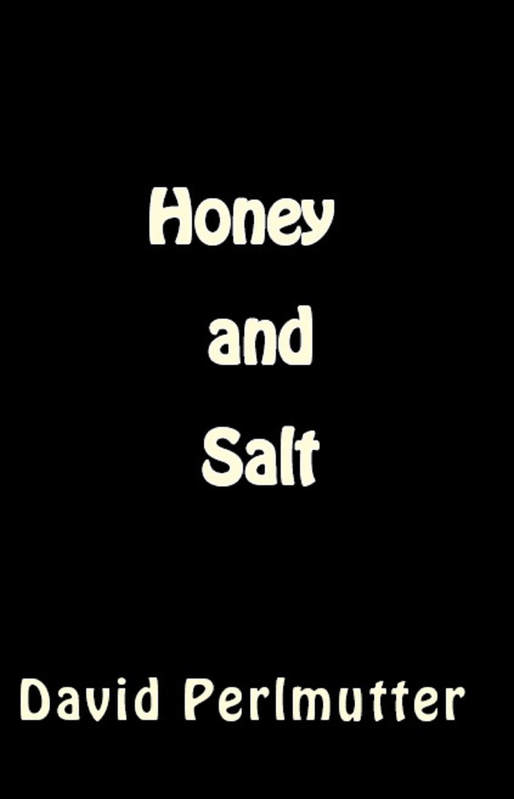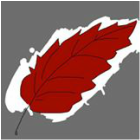INTERVIEW WITH DAVID PERLMUTTERDavid Perlmutter is a freelance writer based in Winnipeg, Manitoba, Canada. He is the author of America Toons In: A History of Television Animation (McFarland and Co.), The Singular Adventures Of Jefferson Ball (Chupa Cabra House), The Pups (Booklocker.com), Certain Private Conversations and Other Stories (Aurora Publishing) Orthicon; or, the History of a Bad Idea (Linkville Press, forthcoming), and The Encyclopedia of American Animated Cartoon Series (Rowman and Littlefield, forthcoming.) He can be reached on Facebook at David Perlmutter-Writer, Twitter at @DKPLJW1, and Tumblr at The Musings of David Perlmutter (yesdavidperlmutterfan). Welcome to Scarlet Leaf Review! Q: Tell us a little about yourself and your background. I was born in 1980 in Winnipeg, Manitoba, Canada, and have lived there my entire life. I have Bachelor’s and Masters degrees in History and a Library Technician certification. Q: Do you think that your school years have had an impact in your writing career? If so, what were you like at school? Yes, they did. I had my first exposure to writing in school, and enjoyed doing it. I also encountered many of the writers who first influenced me in school reading, on my own and for assignments. Since I was rather shy and retiring then, as now, I tended to do a lot more reading then most people on average, and I probably still do. Q: Were you good at English or like Einstein you excel now in a field that was a nightmare for you as a student? English was one of my better subjects, along with History. Q: What are your future ambitions for your writing career? To keep writing and publishing books in fiction and non-fiction forms on a regular basis, as long as I can find publishers willing to underwrite me in this endeavors. Q: So, would you mind telling us what you have written so far? America Toons In: A History of Television Animation (McFarland and Co., 2014) The Singular Adventures Of Jefferson Ball (Chupa Cabra House, 2014) The Pups (Booklocker.com, originally 2009), Certain Private Conversations and Other Stories (Aurora Publishing, 2013) Honey and Salt (Scarlet Leaf Publishing, 2017) Orthicon; or, the History of a Bad Idea (Linkville Press, forthcoming) The Encyclopedia of American Animated Cartoon Series (Rowman and Littlefield, forthcoming) Q: Where can we buy or see them? Amazon, Abebooks and the various publisher’s websites. Q: What genre are your books and what draws you to this genre? In fiction, I write in science fiction, fantasy and horror. I find that these forms are not bound to the same sorts of restrictions in terms of expectations that other genres have. Also, they allow me to write narratives and characters that are close in feel and style to the animated television programs that have been my primary cultural influence. Q: Which actor/actress would you like to see playing the lead character from your most recent book? I could name some names, but, because they are television animation voice actors, you’re not likely to have heard of any of them, so why bother? Q: How much research do you do for your books? A lot! Whatever it is, it has to be as accurate as possible, or else the people and things depicted in it will give you hell. Even for stuff that isn’t “real” in the first place. Q: When did you decide to become a writer and why? What was the principal reason for taking up a pen (metaphorical speaking) and write that first sentence? As soon as I realized that animated cartoons were made by actual people, and were not documentary depictions of real places I wanted to visit more than once every week. Q: Do you write full-time or part-time? Do you have a special time to write or do you write every day, 5 days a week or as and when? Part when I am at work at my library job, full otherwise. No particular time, just when I feel I can fit it in without being interrupted. Q: Where do your ideas come from? Or is it just the spur of the moment, a special feeling you experience or a specific conjuncture that offers you inspiration? Some sort of union between what I watch on television and read, and the desire to fix any and all of the “mistakes” I felt had been made by the writers in doing their work. Q: How do you think you’ve evolved creatively? I have a stronger sense of moral purpose about my work than I used to do, as well as a stronger sense of humor, and a stronger sense that I seem to know about things other people don’t know about at all, since I have to explain some of the more obscure references I put into my work sometimes. Q: Do you work to an outline or plot or do you prefer just see where an idea takes you? For longer works I have an outline; for shorter things, I wing it as much as I can. Q: In your opinion, what is the hardest thing about writing? Not getting paid a regular and dependable weekly salary for doing it. Q: Now, what about the easiest thing about writing? Being the boss of everything and everybody I write about. Q: Do you ever get writer’s Block and if so do you have any tips on how to get through the dreaded writer’s block? Keep exposing yourself to new things culturally. The more you expose yourself to other people’s ideas, the more you’ll figure out how to do those same things yourself. Q: Do you read much and if so who are your favorite authors? For your own reading, do you prefer eBooks or traditional paper/hard back books? I read considerably. I am a paper book person, and will be so forever. Particular favorite authors who have influenced me are many, but a small list would include: Robert Bloch, Jack London, Mark Twain, Philip Jose Farmer, Ray Bradbury, Philip K. Dick, Isaac Asimov, Sherwood Anderson, Lawrence Block, H.P. Lovecraft, Clark Ashton Smith, Arthur Machen, Algernon Blackwood, M.R. James, Joe Lansdale and Ring Lardner Sr. Q: What book/s are you reading at present? The collected stories of Isaac Bashevis Singer, in the three volume Library of America edition. Q: Do you proofread/edit all your own books or do you get someone to do that for you? I do much of my own proofreading and editing, with some assistance from my mother on non-fiction works. Q: Do you let the book stew – leave it for a month and then come back to it to edit? I let it stew when I first draft it. When it’s finished the way I want it like that, that’s when I type. Q: Who edited your last book and how did you select him/her? It was edited by an editor chosen by the publisher. Q: Tell us about the covers of your books. How did it/they come about? I try to tell the publisher what I want, and they try to find an artist who can make it work. Q: Do you think that the cover plays an important part in the buying process? Not terribly, but it can sway some people, so it can’t be glossed over. Q: What would you say are the main advantages and disadvantages of self-publishing against being published or the other way around? With self-publishing, you have to promote everything yourself, and that’s hard if you are, like me, an introverted, insecure person at heart. With mainstream publishing, they take care of promotion, and you just have to do what they tell you to do, and you let them, because it’s their business and not yours. Q: What are your thoughts on good/bad reviews? Good reviews help you get what you want as a writer. Bad reviews ruin entire careers. Q: Did you get interviewed by local press/radio for your book launch? No. I have been strongly ignored by the media in Winnipeg for most of my writing career so far, although I don’t think I did or said anything that caused that. Q: Why do you think that other well written books just don’t sell? Because the publisher didn’t help the author to promote their work enough in a positive way. Or, if they published it themselves, they didn’t do a good enough job promoting it. Q: How do you relax? Reading. Q: What is your favorite book and why? “The Call of the Wild” by Jack London. The book that truly turned me on to adult reading, and the author whose life and work I have admired the most, and whose commitment to sparse but vivid storytelling and social justice I have attempted to honor in my own work. Q: Where can you see yourself in 5 years-time? Doing what I am doing right now- reading, writing and working. Possibly I might get paid more, better and more often as well. Q: What advice would you give to your younger self? You will get through all of this. Do not be bewildered by any of it- it is all normal and commonplace. Q: Which famous person, living or dead would you like to meet and why? Dr. Martin Luther King, Jr. He seems to me to be the only person in the modern world who completely understood the true meaning of peace and racial brotherhood. We all could have learned a great deal more from him had he not been so tragically taken from us. Q: If you could have been the original author of any book, what would it have been and why? Any of Jack London’s. He wrote anything and everything he felt like doing, and he did it without being pretentious, because he was a man from low origins who nevertheless was more perceptive that most of his more learned contemporaries. Q: What advice would you give to aspiring writers? Keep doing it. You won’t get it the first time you do it, but eventually it’ll come, and you’ll be glad it did. Q: Where do you see publishing going in the future? Wherever it wants. I’ll have to keep up with it regardless. Q: How can readers discover more about you and you work? Blog: yesdavidperlmutterfan (Tumblr) Facebook: David Perlmutter- Writer Twitter: @DKPLJW1 LInkedin: David Perlmutter Amazon Author Page: Thank you very much for taking the time out of your busy schedule to take part in this interview. NEW RELEASE: Bravery comes in all forms: fighting bullies and fighting your own demons. Honey and Salt is a superhero novella that will draw you in the just fight of a few super heroines. The story is packed with action and humor. Their quest against evil superheroes and against their own weaknesses is refreshing. You can identify with them and embrace their battles.
0 Comments
Leave a Reply. |
ISSN 2369-8446
To bring joy to readers everywhere. Archives
June 2023
Categories
All
http://roxananastase.weebly.com/
|




